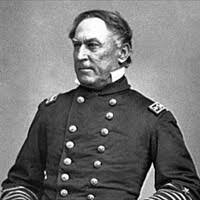If American Christians viewed the Civil War through the lens of post-millennialism, American Christians for whom millennialism is still meaningful—mostly evangelicals—view the current political climate almost entirely through the lens of pre-millennialism. It is the opposite of post-millennialism. Whereas post-millennialism views the world as steadily getting better, pre-millennialism sees it as steadily getting worse, with a stream of signposts that signal we are in the “end times.”
The end times, as you will know if you’ve seen any of the “Omen” films, noticed the “Left Behind” series in the fiction section of a book store, or seen the movie version of the inaugural novel, will begin with the Rapture, when faithful Christians—by which is meant faithful evangelicals—will be taken directly to heaven, thereby avoiding both death and the seven-year hellscape to follow. The Antichrist will take over and life will become, let’s say, interesting. But at the end of seven years Christ will return, defeat the Antichrist, and save or damn the residue of humanity.
I’ve seen it argued that the Civil War influenced the turn from post- to pre-millennialism: it was hard to preserve a sense of an improving humanity amid the reality of a destructive war that killed almost 3 percent of the American population. But the main factor was a mainline Christianity that became increasingly earth-bound and bereft of the supernatural. In the late 19th century, mainline churches turned to the Social Gospel, a laudatory movement but one that was but little different from secular movements aimed at helping the poor and fighting back against the evils of monopoly capitalism and urban corruption. Seminaries began to teach “higher criticism,” which essentially dissected the Bible, revealing the Old Testament as a shotgun marriage of various Jewish theological perspectives and the Gospels not as reliable biographies of Jesus but as an evolving expression of the early Christian community.
Evangelicals responded with alarm, a rejection of intellectualism, and an insistence upon certain “fundamentals,” chief among them Scriptural inerrancy—which, while it might surprise many evangelicals to discover this, was something new. Though Bishop James Ussher might famously have dated the first day of Creation to October 23, 4004 BC, based on an ingeniously literal reading of the Bible, many educated Christians did not see Scripture in such terms. It was common to view some events set forth in Scripture as being symbolic and even to question whether certain books of the Bible belonged in the canon. (Martin Luther, for instance, considered the Letter of James to be “an epistle of straw.”)
Lest it seem as if I am trashing evangelical Christianity, let me pause here long enough to say that it has enormous strengths. These are well captured in Alistair McGrath’s “A Passion for Truth: The Intellectual Coherence of Evangelicalism” (1996), p. 22:
1. A focus, both devotional and theological, on the person of Jesus Christ, especially his death on the cross;
2. The identification of Scripture as the ultimate authority in matters of spirituality, doctrine and ethics;
3. An emphasis upon conversion or a “new birth” as a life-changing religious experience;
4. A concern for sharing the faith, especially through evangelism.
These attributes apply to many “mainstream” denominations as well, but evangelical Christians are among their most determined and least apologetic advocates.
But to return to pre-millennialism, evangelicals, to varying degrees, are convinced that we are living in the end times. They take pleasure in the fact that President Trump has followed through on a commitment, made by Congress years ago, to move the U.S. embassy in Israel from Tel Aviv to Jerusalem and are, at best, indifferent to the fact that this has hamstrung America’s ability to influence a peaceful resolution to the Palestinian question. It’s a move in the direction of bringing about the rebuilding of the Temple in Jerusalem—which would have to be done by eliminating the Dome of the Rock, one of Islam’s supreme holy places. This, in turn, would pave the way for all Jews to return to the Holy Land, which would set the stage for the Rapture; and for Jews to accept Jesus as the Messiah. (Evangelicals manage to combine sympathy for Jews with a basically anti-Semitic view that they must and shall reject Judaism.)
Pre-millennialism also helps to explain what, to many onlookers, seems inexplicable: the fawning adulation that some evangelicals have for Donald Trump, a man whose sexual history is problematic, to say the least; whose public persona is that of an unabashed bully; who knows next to nothing about Christianity, does not concede that he has ever sinned, and therefore is in no need of salvation. The president nonetheless has made good on election promises that address evangelical concerns, particularly the appointment of federal judges likely to overturn Roe v Wade and undo gay marriage.
Evangelicals have squared the circle by likening him to King Cyrus of Persia, a pagan used by God to liberate the Jews from the Babylonian Captivity. Earlier this month, at an “Evangelicals for Trump” rally, Miami megachurch pastor Guillermo Maldonado was explicit on this point. “Father, we give you the praise and honor and we ask you that he can be the Cyrus to bring reaffirmation, to bring change into this nation, and all the nations of the Earth will say America is the greatest nation of the Earth.”








